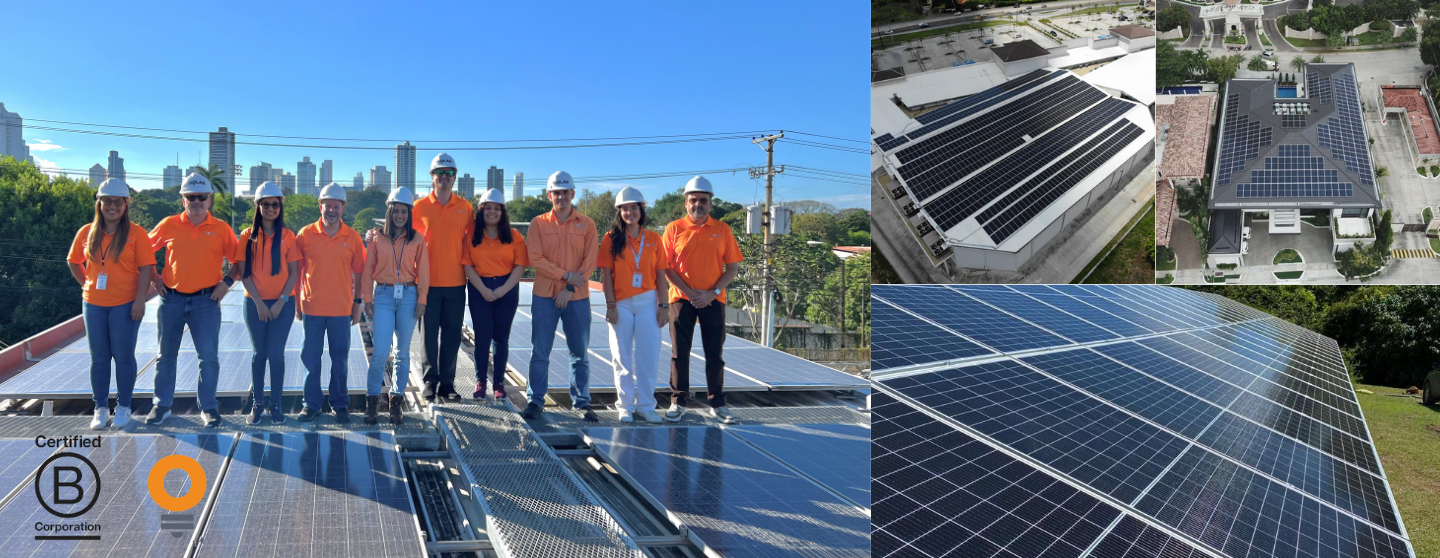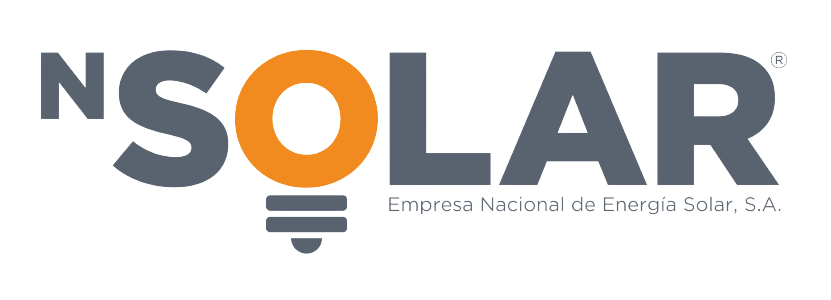

Empresa Nacional de Energía Solar, S.A.

Panamá Province, Panama
January 2024
Solar panel installation
Service with Significant Environmental Footprint
Panama
NSolar es una empresa tecnológica de energía fundada en el 2014 para liderar una revolución de energía limpia en Panamá. Al 2023 ha instalado con éxito más de 269 proyectos con más de 49,595 paneles solares y 20.41 MWp de capacidad, generando más de 26,017 MWh de energía limpia, ahorrándole más de $3.9 millones a sus clientes —y ahorrando al planeta más de 457,691 toneladas de emisiones de CO2, aportando así a la lucha global contra el cambio climático. Su equipo de ingenieros y técnicos altamente experimentados garantiza instalaciones con tecnología, seguridad y calidad mundial, combinando paneles solares con baterías para ofrecer a sus clientes soluciones energéticas integrales. Una cultura corporativa joven e innovadora, enfocada en la satisfacción total de cada uno de sus clientes, sigue siendo un integrante imprescindible para el éxito de Nsolar.net
Overall B Impact Score
Governance 7.2
Governance evaluates a company's overall mission, engagement around its social/environmental impact, ethics, and transparency. This section also evaluates the ability of a company to protect their mission and formally consider stakeholders in decision making through their corporate structure (e.g. benefit corporation) or corporate governing documents.
What is this? A company with an Impact Business Model is intentionally designed to create a specific positive outcome for one of its stakeholders - such as workers, community, environment, or customers.
Workers 24.6
Workers evaluates a company’s contributions to its employees’ financial security, health & safety, wellness, career development, and engagement & satisfaction. In addition, this section recognizes business models designed to benefit workers, such as companies that are at least 40% owned by non-executive employees and those that have workforce development programs to support individuals with barriers to employment.
Community 21.0
Community evaluates a company’s engagement with and impact on the communities in which it operates, hires from, and sources from. Topics include diversity, equity & inclusion, economic impact, civic engagement, charitable giving, and supply chain management. In addition, this section recognizes business models that are designed to address specific community-oriented problems, such as poverty alleviation through fair trade sourcing or distribution via microenterprises, producer cooperative models, locally focused economic development, and formal charitable giving commitments.
Environment 47.0
Environment evaluates a company’s overall environmental management practices as well as its impact on the air, climate, water, land, and biodiversity. This includes the direct impact of a company’s operations and, when applicable its supply chain and distribution channels. This section also recognizes companies with environmentally innovative production processes and those that sell products or services that have a positive environmental impact. Some examples might include products and services that create renewable energy, reduce consumption or waste, conserve land or wildlife, provide less toxic alternatives to the market, or educate people about environmental problems.
What is this? A company with an Impact Business Model is intentionally designed to create a specific positive outcome for one of its stakeholders - such as workers, community, environment, or customers.
Customers 3.7
Customers evaluates a company’s stewardship of its customers through the quality of its products and services, ethical marketing, data privacy and security, and feedback channels. In addition, this section recognizes products or services that are designed to address a particular social problem for or through its customers, such as health or educational products, arts & media products, serving underserved customers/clients, and services that improve the social impact of other businesses or organizations.